How the world reported French riots over shooting of teenage boy
Violence has ripped through French suburbs in days following death of Nahel M.
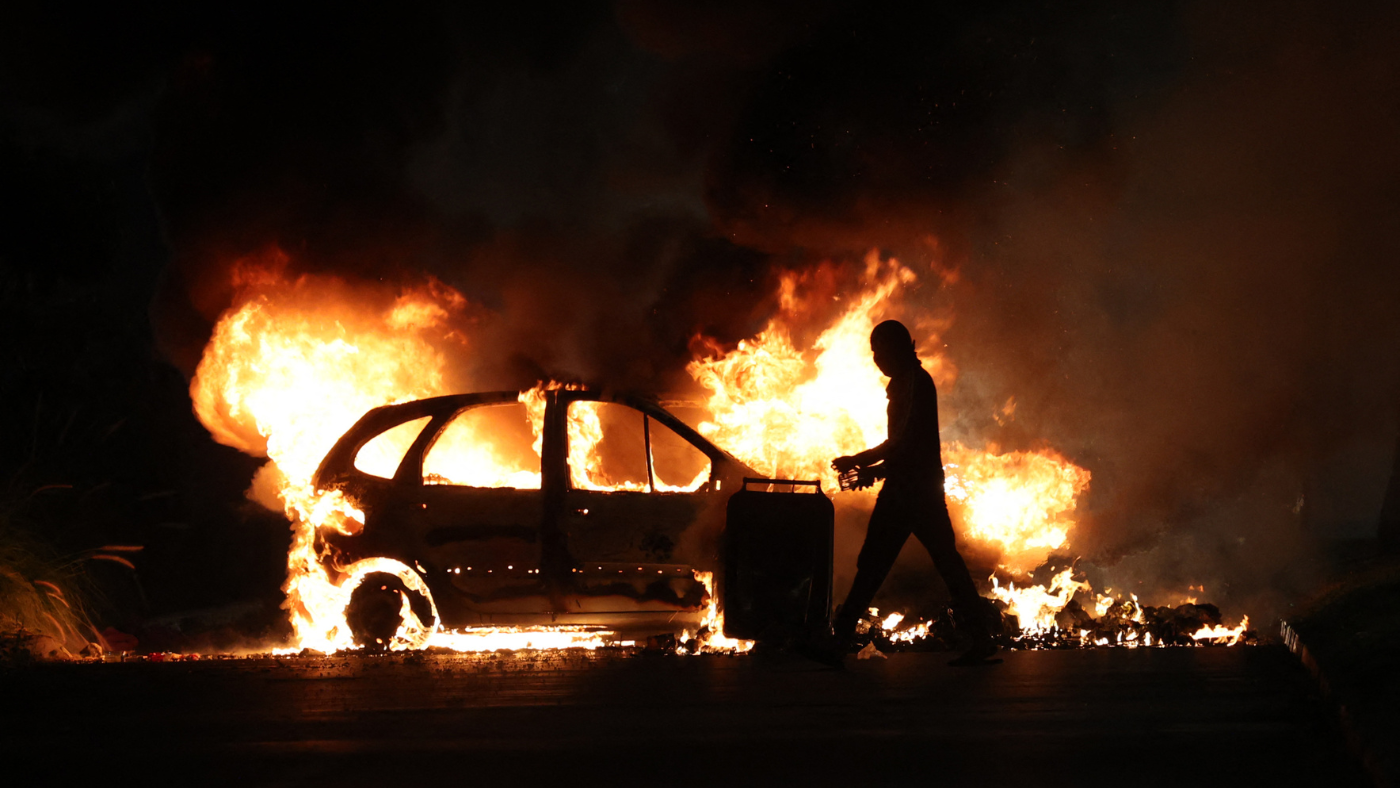
A free daily email with the biggest news stories of the day – and the best features from TheWeek.com
You are now subscribed
Your newsletter sign-up was successful
The killing of a 17-year-old boy by police during a traffic stop in the Parisian suburb of Nanterre last week has triggered days of unrest in France.
Nahel M., as the French teenager of Moroccan and Algerian descent has been formally identified, was “shot at point-blank range” on 27 June, said French newspaper Le Monde.
Thousands of people have taken to the streets in the suburbs of Paris and in cities across France in the days that have followed. Public transport services were brought to a standstill in the French capital over the weekend, after buses were set on fire during the riots last week.
The Week
Escape your echo chamber. Get the facts behind the news, plus analysis from multiple perspectives.

Sign up for The Week's Free Newsletters
From our morning news briefing to a weekly Good News Newsletter, get the best of The Week delivered directly to your inbox.
From our morning news briefing to a weekly Good News Newsletter, get the best of The Week delivered directly to your inbox.
‘Grieve, vent, revolt’
“Because they could have been avoided, some tragedies arouse particular and understandable emotion,” said Le Monde. As Nahel’s killing was captured on video the charge of voluntary manslaughter brought against the officer that pulled the trigger is “hardly in doubt”.
Protesters took to the streets “by the thousands to grieve, to vent and to revolt”, said Catherine Porter in The New York Times. They “erected barricades, lit fires and shot fireworks at police” in Nanterre, said The Sydney Morning Herald, as “armoured police vehicles rammed through the charred remains of cars”.
Thousands of officers were deployed in an attempt to quell the violence and hundreds of arrests have been made. The protesters have been “calmer” in recent days, said The Washington Post, and Nahel’s grandmother has appealed to the rioters to bring an end to the unrest.
Mayors across France have “called on” the public and officials to “gather at town halls” in “mass opposition” to the protests, said RTÉ. The “extraordinary call” was made after the home of a Paris suburb mayor was attacked “with a flaming car in an apparent bid to burn it down”.
A free daily email with the biggest news stories of the day – and the best features from TheWeek.com
‘An ancient scar’
Groups of “French Algerians, French Moroccans, French Muslims and Black French people” who live in “minority-dominated enclaves in a majority-white country” saw “their own plight” in “the life and death of Nahel M.”, said Porter in The New York Times. Very few of the “marchers” knew the teenager personally – but for many it “felt as if they had”.
There is an “ancient scar” that troubles the French “banlieues”, or suburbs, said the BBC’s Hugh Schofield in Paris: one “born of colonialism, arrogance and long-gone wars and nurtured hatreds”. Nahel’s death “instantly inflamed raw nerves in neighbourhoods that have welcomed generations of immigrants from France’s former colonies and elsewhere”, said El País.
“The reality of systemic racism in France is routinely and aggressively denied by French authorities under the twin veils of colorblindness and cultural arrogance,” said Professor Crystal M. Fleming, from Stony Brook University, New York, at Al Jazeera.
Academic research has “long demonstrated extensive racial bias in French policing”, she continued. “The real violence” isn’t just the “burning of buildings and destruction of property” taking place – “it’s the very real human cost of victims like Nahel adding to the body count produced by centuries of French oppression”.
‘Stuff of bad dreams’ for Macron
President Emmanuel Macron said last week that the shooting was “unexplainable and inexcusable”. His remarks were “unusually frank in a country where senior politicians are often reticent to criticise police”, said CNBC.
Macron left an EU summit in Brussels last week to attend crisis meetings on the situation, and has called for social media companies to remove footage of the riots from their platforms.
The violence “is the stuff of bad dreams” for the French president, said the BBC’s Schofield. The events have “raised the spectre of riots that rocked French suburbs” for three weeks in 2005 after two men were electrocuted as they “tried to flee a police checkpoint” in a Parisian suburb, said Politico. Then President Jacques Chirac was forced to put the country into a state of emergency.
In 2005, “the rallying cries of protesters were social neglect, racial discrimination and police brutality”, said the BBC’s Schofield. Today, these “slogans” are “little changed”.
“The timing” of Nahel’s death “could not be worse” for Macron, said Politico. Weeks of protests over the pension age being raised had just abated, and domestic “discontent” over inflation “and a volatile international landscape” pose continued challenges for the president. His “message is one of appeasement”, the site continued: “but there is no guarantee it will be heard”.
There are “reasons to hope” that the unrest “will be less prolonged” than the events of 2005, said The Local France. No matter how long the violence lasts, Nahel’s death “demands both an investigation leading to indisputable judicial conclusions”, said Le Monde, “and a thorough overhaul of the conditions under which police officers use their weapons”.
Julia O'Driscoll is the engagement editor. She covers UK and world news, as well as writing lifestyle and travel features. She regularly appears on “The Week Unwrapped” podcast, and hosted The Week's short-form documentary podcast, “The Overview”. Julia was previously the content and social media editor at sustainability consultancy Eco-Age, where she interviewed prominent voices in sustainable fashion and climate movements. She has a master's in liberal arts from Bristol University, and spent a year studying at Charles University in Prague.
-
 The ‘ravenous’ demand for Cornish minerals
The ‘ravenous’ demand for Cornish mineralsUnder the Radar Growing need for critical minerals to power tech has intensified ‘appetite’ for lithium, which could be a ‘huge boon’ for local economy
-
 Why are election experts taking Trump’s midterm threats seriously?
Why are election experts taking Trump’s midterm threats seriously?IN THE SPOTLIGHT As the president muses about polling place deployments and a centralized electoral system aimed at one-party control, lawmakers are taking this administration at its word
-
 ‘Restaurateurs have become millionaires’
‘Restaurateurs have become millionaires’Instant Opinion Opinion, comment and editorials of the day
-
 Bizarre pizza toppings horrify Italians
Bizarre pizza toppings horrify ItaliansTall Tales And other stories from the stranger side of life
-
 Despairing husband creates 'Taylor Swift jar'
Despairing husband creates 'Taylor Swift jar'Tall Tales And other stories from the stranger side of life
-
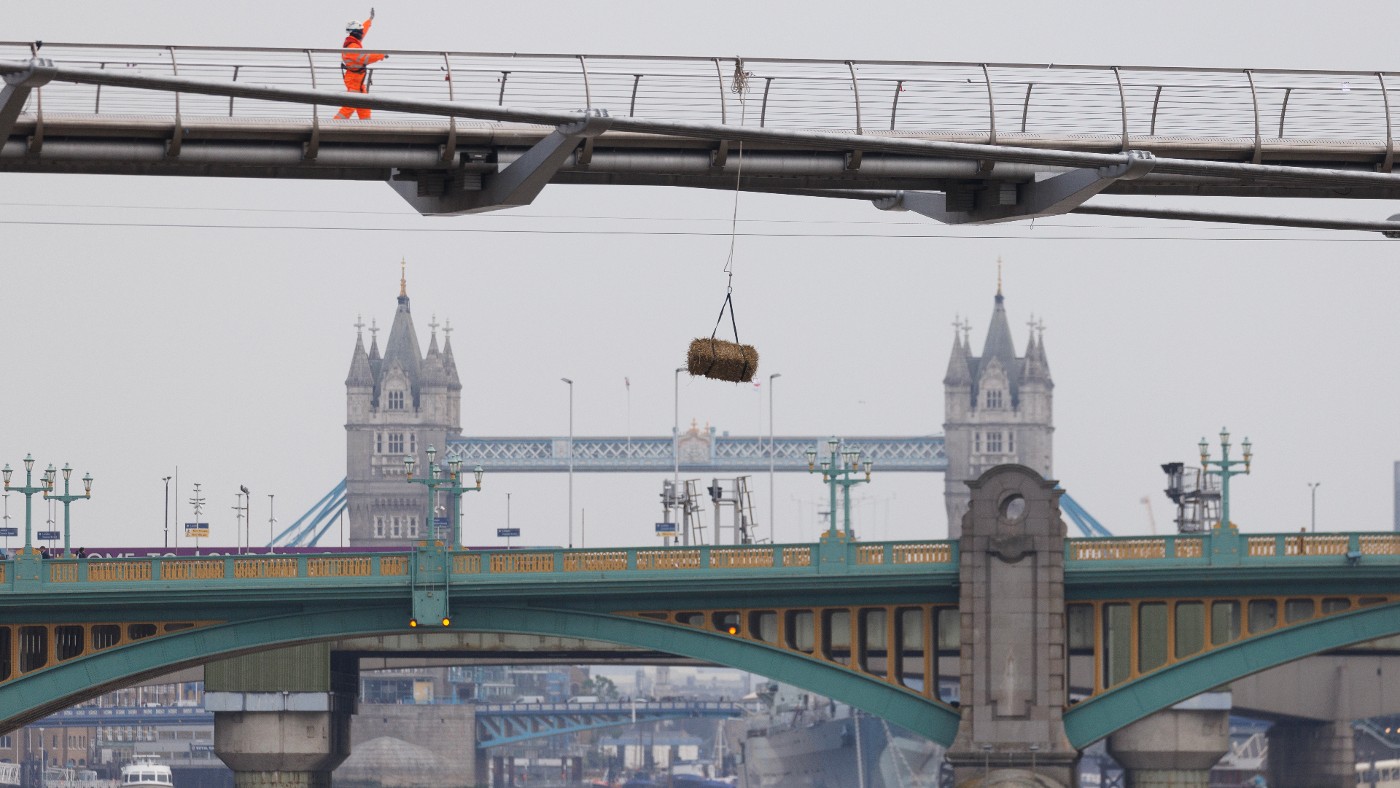 Why a bale of straw is hanging from a London bridge
Why a bale of straw is hanging from a London bridgeTall Tales And other stories from the stranger side of life
-
 The spiralling global rice crisis
The spiralling global rice crisisfeature India’s decision to ban exports is starting to have a domino effect around the world
-
 Netanyahu’s reforms: an existential threat to Israel?
Netanyahu’s reforms: an existential threat to Israel?feature The nation is divided over controversial move depriving Israel’s supreme court of the right to override government decisions
-
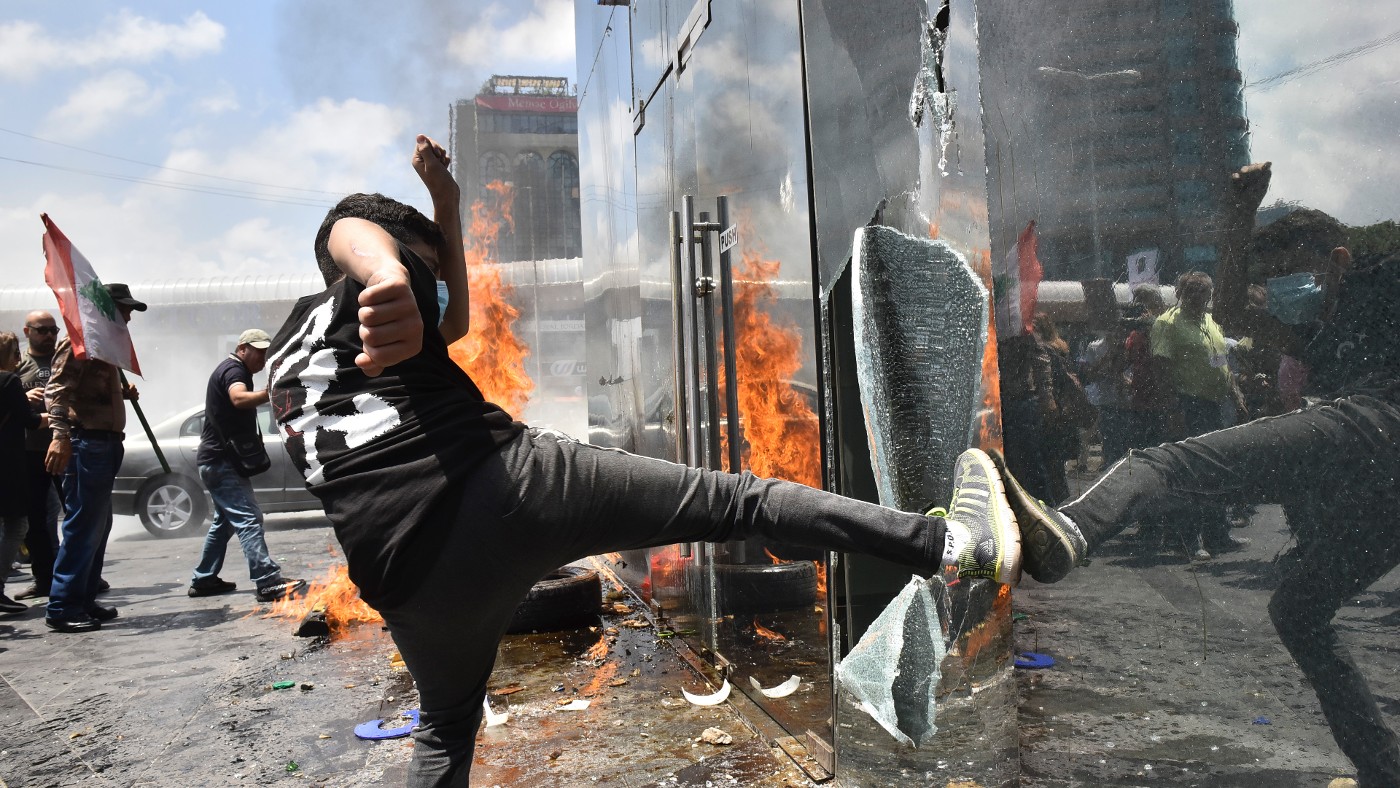 A country still in crisis: Lebanon three years on from Beirut blast
A country still in crisis: Lebanon three years on from Beirut blastfeature Political, economic and criminal dramas are causing a damaging stalemate in the Middle East nation
-
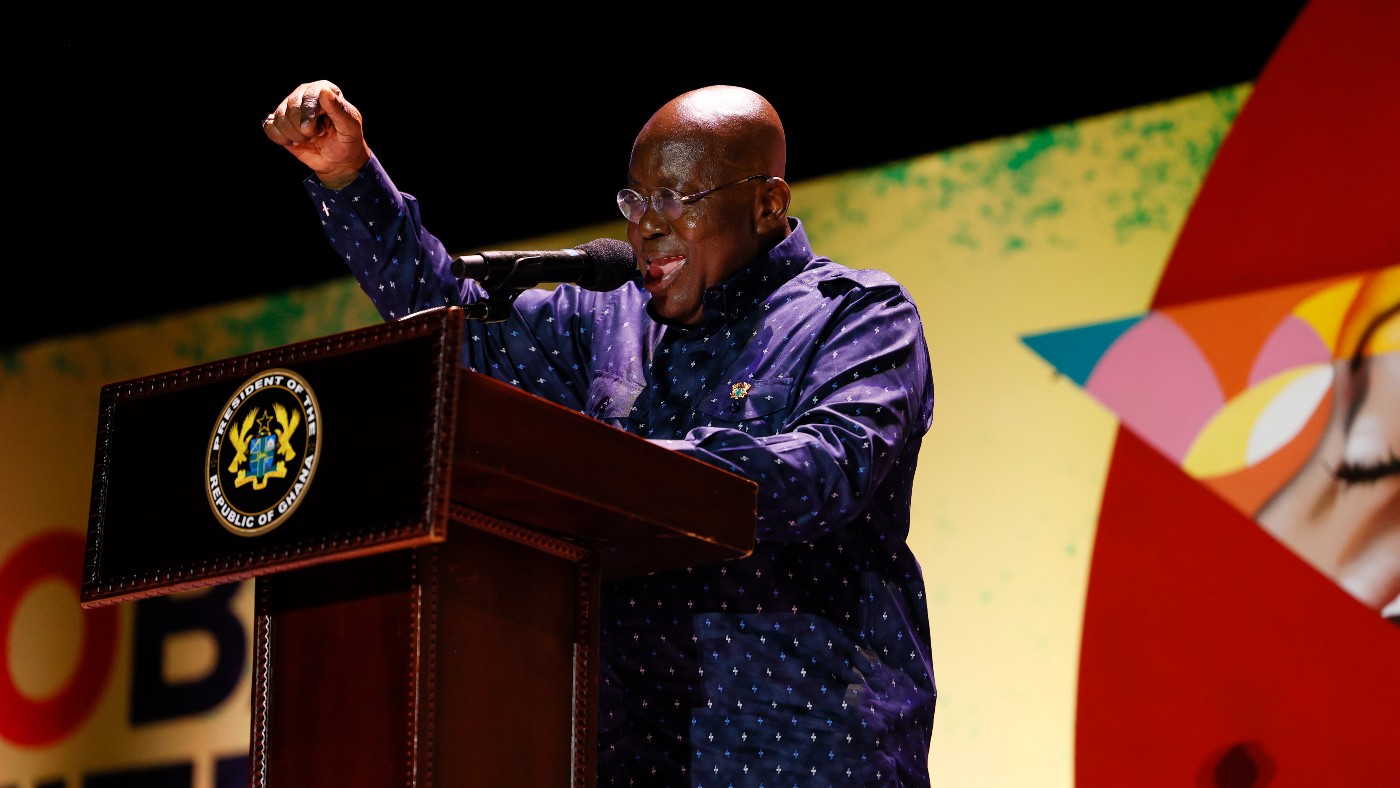 Ghana abolishes the death penalty
Ghana abolishes the death penaltyfeature It joins a growing list of African countries which are turning away from capital punishment
-
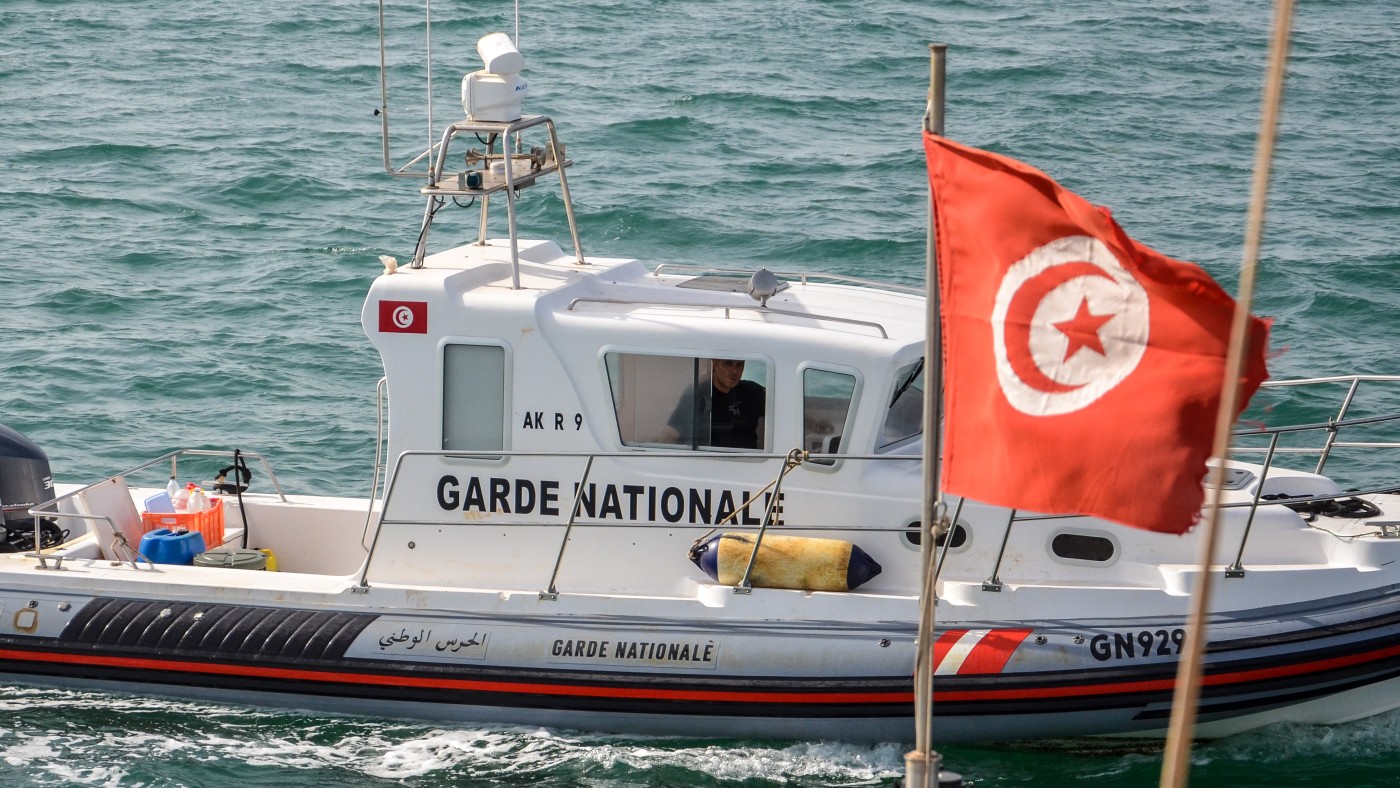 EU-Tunisia agreement: a ‘dangerous’ deal to curb migration?
EU-Tunisia agreement: a ‘dangerous’ deal to curb migration?feature Brussels has pledged to give €100m to Tunisia to crack down on people smuggling and strengthen its borders